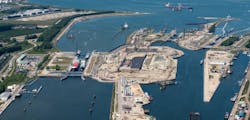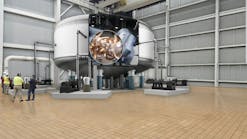In the discussion at CNBC’s Sustainable Future Forum, Siemens Energy CEO Christian Bruch explained how there was “no commercial case” for green hydrogen at the moment. He outlined the challenges facing the sector and the focus areas so green hydrogen gains momentum.
Speaking to CNBC’s Steve Sedgwick, he said that it is expensive to produce green hydrogen. “We need an environment, obviously, of cheap electricity and in this regard, abundant renewable energy available to do this.” But this is not available, he argued.
Bruch pointed out that National Grid describes grey hydrogen as being the “most common form of hydrogen production” today. Grey hydrogen is made from natural gas or methane using steam methane reformation, but greenhouse gases are not captured in this process, he explained.
While Bruch made his case that green hydrogen is expensive, he also stressed on the importance of developing an industry to support its commercialization.
Meanwhile, Italian energy infrastructure giant Snam’s CEO Marco Alverà, a participant in the same discussion, highlighted the importance of devising a framework to push for the development of a more sustainable industry.
“You need the fine print and the policies to incentivize or make it mandatory: to switch from grey to green, to switch from gas to hydrogen, to switch from coal to hydrogen,” he said. “And then it will happen very fast.”
Although the International Energy Agency has described hydrogen as a “versatile energy carrier” with a wide range of application areas from industry to transport sectors, Bruch says passenger cars is a very difficult use case in the transport sector.
“I think it’s much more reasonable to talk about hydrogen use either in ... heavy duty mobility or in certain industrial applications,” he added.
“We talk about green steel or green refining processes, which are much more reasonable, much more CO2 effective, and offer a much more beneficial cost environment to make green hydrogen possible.”





